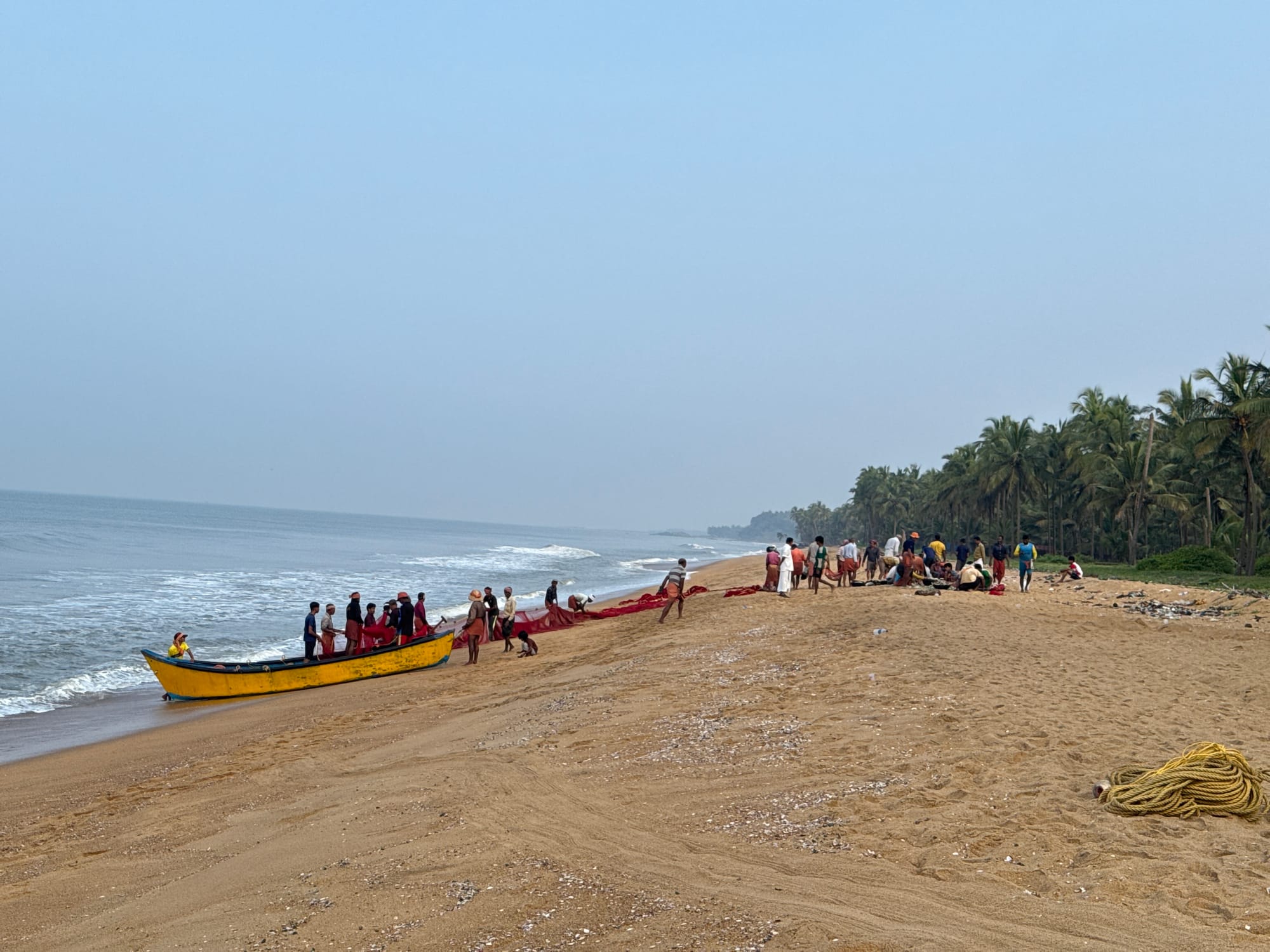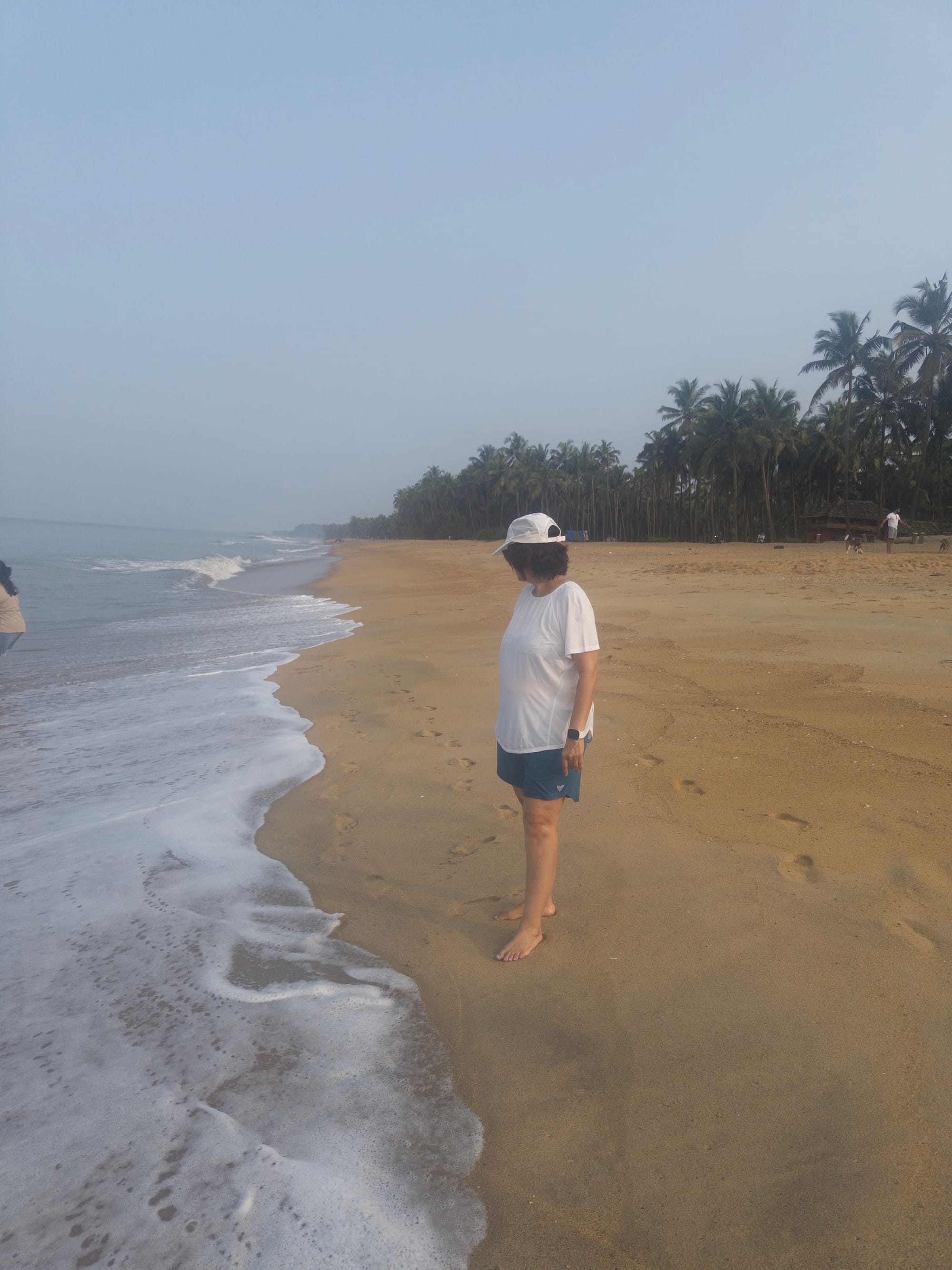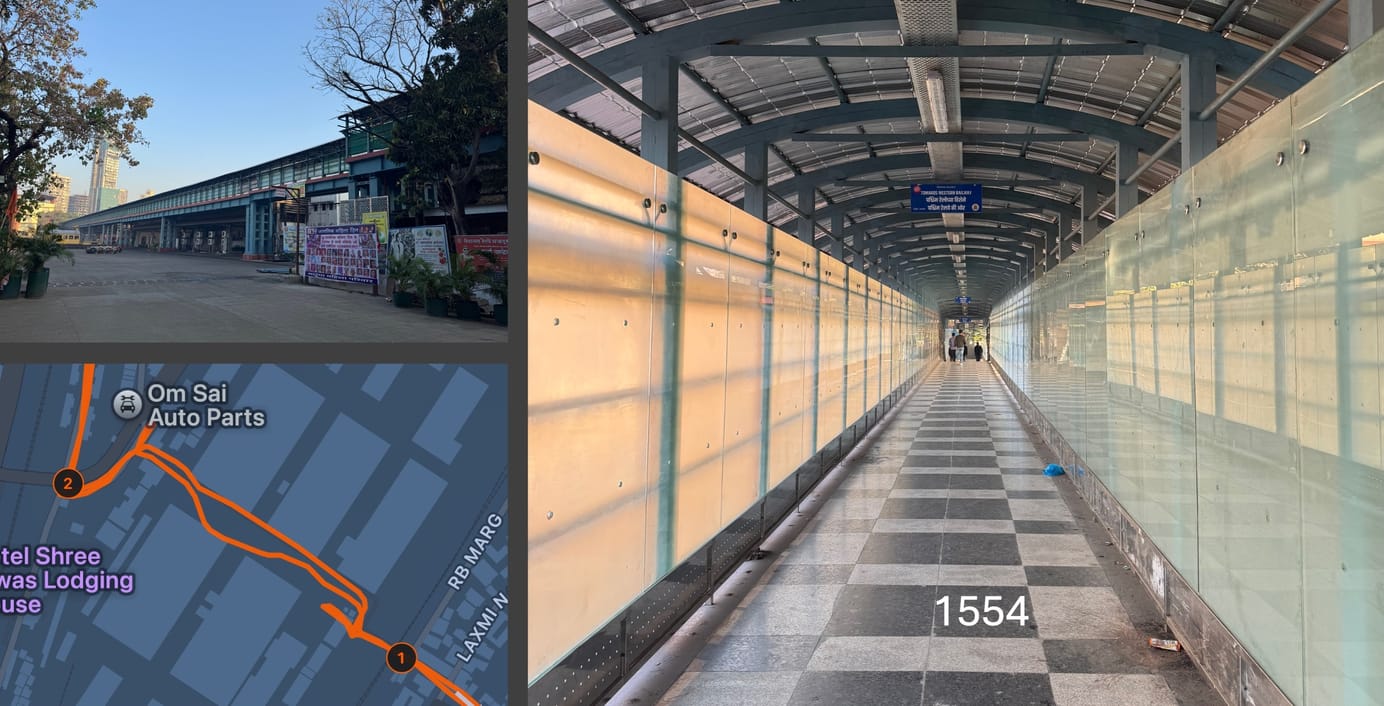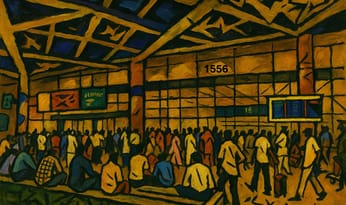
Counting Down to 90 - Week 1577 - Diwali, Footprints, Immortality, Purpose
Most of us though, after our journey has ended, will just be memories slowly fading within the universal consciousness over time, eventually, forgotten.
Audio
Text
This is the long Diwali weekend. As a kid, it was all about writing shlokas on the front page of account books with a quill dipped in a red inkpot in my uncle’s office in Vadgadi and visiting elders the next day to wish everyone “saal mubarak”. Now, with the change in the financial year and most elders gone, Diwali has become a holiday to be spent with close family, usually outside Mumbai, where three generations can bond together, free from the city’s interruptions and annoyances.
I wrote about this in 2006, 2009, 2011, and 2013.
Last week, I wrote about running on the beach in Goa, where the waves often slowed me down. However, walking on a beach with Bijal, the waves breaking around our soaked feet and legs, is a different kind of fun. This week, in Bekal, on an almost private beach, we saw that while it takes a village to raise a child, it also takes a village to go fishing. The picture says it all.

As we walked, the incoming tide immediately washed away our footprints and Bijal reminded me of Henry Longfellow’s lines in “A Psalm of Life”.

Lives of great men all remind us
We can make our lives sublime,
And, departing, leave behind us
Footprints on the sands of time;
I wondered. Most of us will leave faint footprints for our immediate family and close friends, which will also then be washed away as they pass on. “We’re truly gone when the last person who remembers us, dies,” our “second death,”. This irrelevance of our lives has been captured so well in Shelley’s Ozymandias.
My name is Ozymandias, King of Kings;
Look on my Works, ye Mighty, and despair!
Nothing beside remains. Round the decay
Of that colossal Wreck, boundless and bare
The lone and level sands stretch far away.
Is that entirely true though? Can’t our words, poems, videos, or audios live on and obviate this “second death,” even if no one who knew us remained? Isn’t it possible to achieve non-physical immortality, or is it just a mirage?
Will my words being digitally available for a long time, matter to anyone except close family and friends, even if I live to 90 and write a post titled “Counting Down to 90 - Week 1”? Will anyone read these words of mine in the future after I am gone? Even if I am able to achieve singularity and download my mind into a computer or clone myself, will that prevent me from being forgotten? Don’t we need to make room for others?
Sahir Ludhianvi answered this in his song, “Main Pal do Pal ka Shayar Hoon”
Kal Aur Aaenge Nagmo Ki
Khilti Kaliyaan Chunne Vaale
Mujhse Behtar Kahne Vaale
Tumse Behtar Sunne Vaale
Kal Koi Mujhko Yaad Kare
Kyun Koi Mujhko Yaad Kare
Mashruf Zamaanaa Mere Liye
Kyun Vaqt Apna Barbad Kare
Translation: Why should anyone remember me or waste their time on me, since there will be better poets than me and better audiences than you in the future!
Four days before he died, two days ago, Bibek Debroy presciently wrote his own obituary.
It all seems so transient and puerile. But so am I, transient and puerile, a dot that might have been wiped off. In that event, what would have happened? A few condolences, perhaps even from important people. “Irreparable loss.” Perhaps a posthumous Padma Bhushan or Padma Vibhushan. A few obituaries. What will they mention? Trade work of 1980s, law reform of 1990s, State work of 2000s, railway reforms of 2015, even resignation from Rajiv Gandhi Institute in 2005? Who remembers? Nothing seminal about such work. Had a role in the rat race, was temporarily read and passed into oblivion, buried in journal archives.
Only a few people truly live on, immortal in collective memories, usually writers, poets, scientists, inventors, kings, queens, and artists, rarely business people or politicians.
Mr. Debroy was an economist and a polymath. I hadn’t heard of him until a year ago, when I picked up his 10-volume Mahabharata, perhaps the most definitive work on the story in the last 150 years. This is likely the one thing he’ll be remembered for, for a long time.
Most of us though, after our journey has ended, will just be memories slowly fading within the universal consciousness over time, eventually, forgotten.
All of this then implies that the only thing that matters is how we live now. The kindness we show, the good we spread and the lives we impact. If most of us will be forgotten, why not make a difference today, however small, even if it is just to one other person, to make our lives worth the effort?
Tess Gallagher captures it all in her poem, “Opening.”
I entered this world not wanting
to come. I'll leave it not
wanting to go. All this while,
when it seemed there were two doors,
there was only one—this
passing through.
Bhavin's Writings Newsletter
Join the newsletter to receive the latest updates in your inbox.




